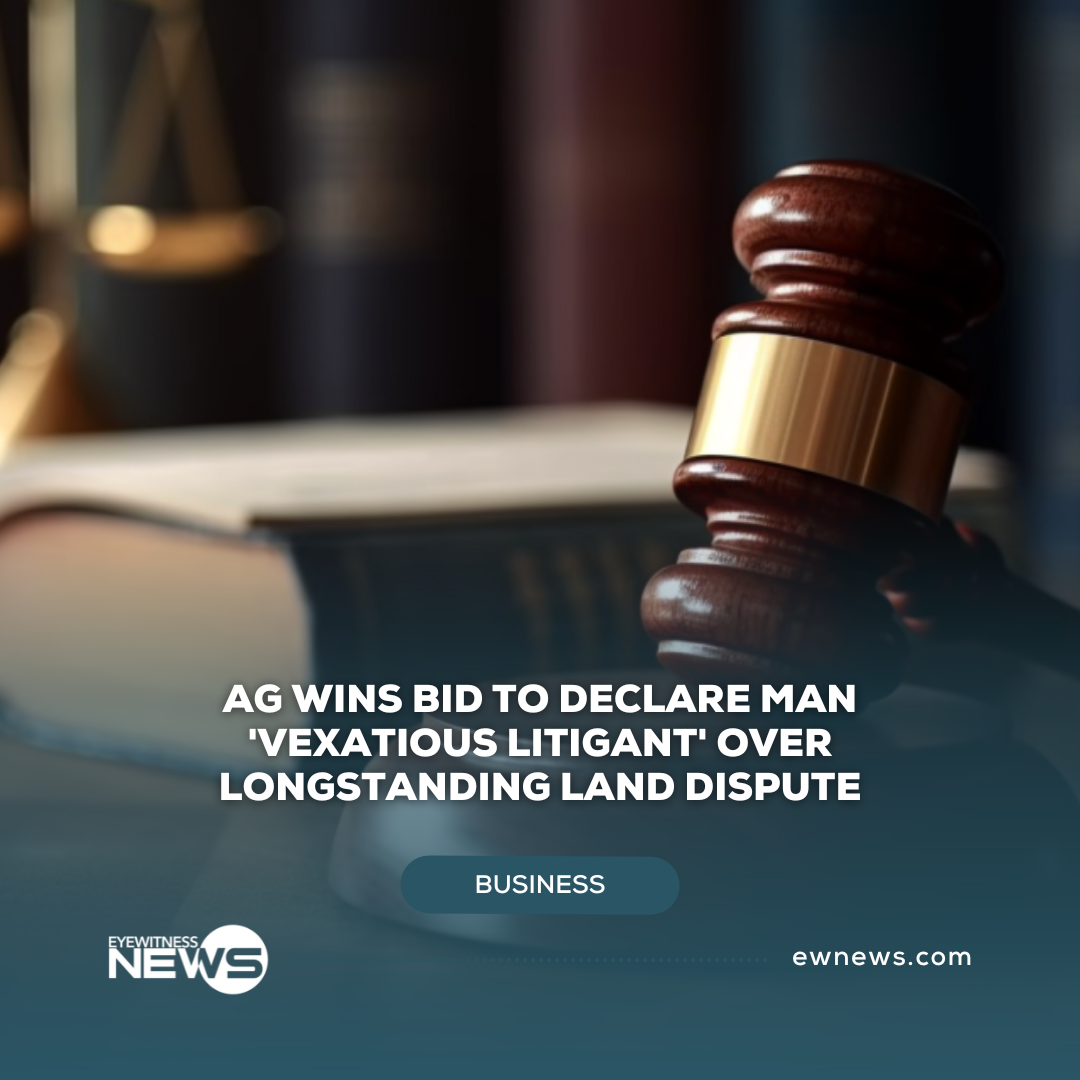NASSAU, BAHAMAS – The Attorney General has successfully petitioned to have a man claiming ownership of a large parcel of West End real estate associated with the former Ginn project declared a “vexatious litigant,” preventing him from initiating any further legal challenges to the ownership of the property unless granted permission by the Supreme Court.
Justice Loren Klein, in a February 17th decision, noted that Ricardo F. Pratt had spent nearly two decades engaging in an “incessant litigation campaign,” claiming ownership of various parcels of land, particularly the John Bootle Tract in West End, Grand Bahama. This tract, comprising 906 acres, was granted to John Bootle and his heirs in 1818. Pratt claims to be the “lawful great-great-great-great-grandson” of Bootle and, therefore, entitled to the land by descent.
Over the years, major Bahamian commercial law firms representing Ginn and its successors, including its investment bank partner Lubert Adler, pushed the Attorney General’s Office to seek a Supreme Court order to label Pratt a “vexatious” litigant. His repeated legal actions were seen as wasting court resources, contributing to case backlogs, and incurring unnecessary legal expenses, all while casting doubt on the land’s title.
In 2017, Justice Gray-Evans ruled that Pratt’s claim to ownership of the land was based on his assertion that he was a descendant of John Bootle, who had originally received a Crown grant for the property. Pratt also claimed to be the administrator of his grandfather’s estate, Ruel Pratt. However, the judge found that Pratt’s chain of title was fragmented and full of discrepancies, rendering his claim unsubstantiated. He failed to provide any documentary proof, and it was concluded that the Ruel Pratt estate had no legal claim to the John Bootle tract.
Justice Klein noted: “Mr. Pratt has litigated all of these matters pro se (or as a litigant in person, to use the modern expression) and perhaps fancies himself a legal aficionado. If I may say so, he has built up considerable experience and knowledge of the practice of the law over the years and has acquitted himself well before the Courts, despite having met with little success. It should come as no surprise that his prolific litigation has not been suffered gladly, and this has led the Attorney General (“AG”) in the exercise of his constitutional function to protect the public interest in the administration of justice to make an application to put a stop to it, by seeking to have Mr. Pratt declared a vexatious litigant pursuant to s. 29 of the Supreme Court Act.”
On February 3, 2020, the Attorney General’s Office initiated proceedings under Section 29 of the Supreme Court Act to declare Pratt a vexatious litigant. This section allows the Attorney General to seek a declaration preventing individuals from pursuing legal actions without prior court approval.
Back in January, Pratt sought to have a trial on the merits of his claim and subsequently requested the appointment of an attorney under Section 29 of the Supreme Court Act, citing poverty due to unemployment and illness. The Attorney General objected, arguing that this was a delay tactic. Pratt maintained that he needed a fair trial and could not afford counsel. However, the court found that Pratt did not provide sufficient evidence of financial hardship. Despite claiming poverty, his recent legal actions, including filing claims and spending money in the process, contradicted his assertions. As a result, the court was not convinced to appoint an attorney under Section 29.
Justice Klein ruled: “I am entirely satisfied that Mr. Pratt has habitually and persistently and without reasonable grounds instituted vexatious proceedings within the meaning of s. 29 of the SCA, and I am further satisfied that I should exercise my discretion to grant the Order sought by the Attorney General.”






